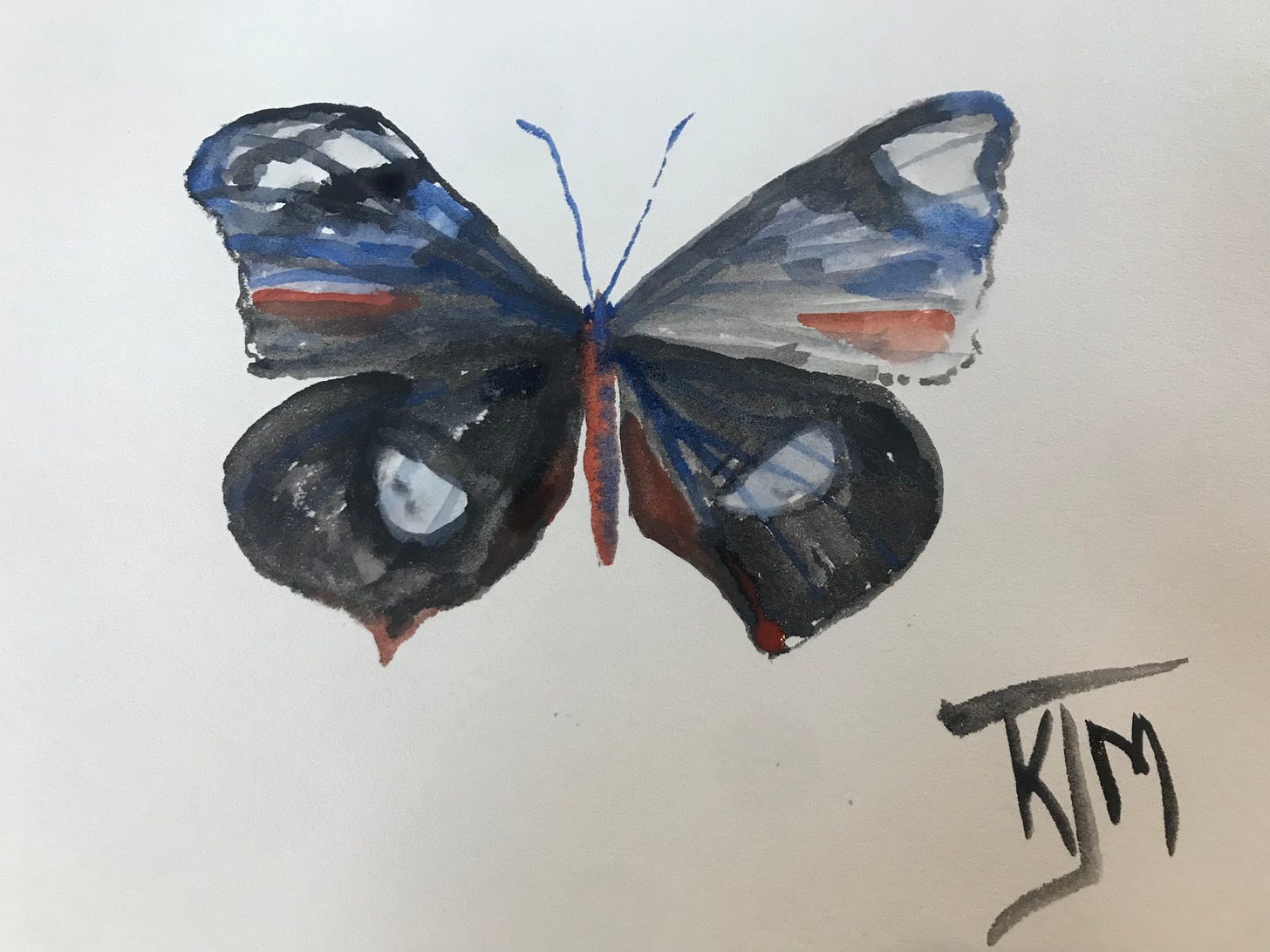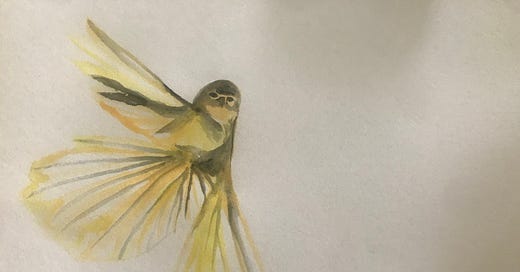Circa 1860-1869 six Scottish rabbits were released with champagne and celebration in Riverton, New Zealand. At the time John Mitchell, a Gaelic speaking farm worker, protested the introduction of rabbits. He took his protest to Parliament. He was ignored, laughed at. On rabbit release day in Riverton, John Mitchell stood up and told the toasting crowd what he thought about the introduction of rabbits to the pristine grasses of Aotearoa. He spoke in English and in Gaelic.
By 1916 farmers in the Otago/Southland region were being prosecuted under The Rabbit Nuisance Act for not controlling their rabbit populations. Native grasses had dwindled, pastures were patched, ragged and bare. Sheep no-longer thriving like they used to back in 1859.
Control of rabbits of course remains a huge problem for land and pasture in Aotearoa New Zealand today. And I, in my strange readings of history, remain comforted that John Mitchell did protest. (The kindness of ignored protest?) I don’t know what he said to the champagne-crowd, but I’m glad to read that he spoke to say his ‘no’ in Gaelic and in English.
In Ōtepoti Dunedin we were fortunate recently to be visited by Scottish poet and essayist Kathleen Jamie. She read to us mostly in English, and some poems in Scots, a language of my ancestors which I had never heard spoken. Something in me recognised the cadence of the Scots, and I can’t say how exactly, but I could see the little stream in the poem butting its way through the landscape. There was a kind of relief in this hearing, this recognition, in the persistence of the stream.
Language of course, we know, can be lost. And this is like the loss of a body of water. We can no-longer move in the subtle patterns of the river. We become parched.
Lately I’ve been deep in Gerard Manley Hopkins journals (Penguin Classics edition). In 1870 he writes that his father told him of, “an old lady (she is now some years dead) who could speak Cornish. Her name was Pendraith. I believe he knew of no other” — Hopkins continues straight on after this sentence to describe a twig of ash in detail. He takes time with his prose, rendering plants, skies and flowers in words. He spends a page describing one bluebell. He is there, the loving intelligence of his attention is there: alive in the pages.
Why do I write this here? To find a commonality with me and Hopkins? To mark a small noticing of lost language? Certainly Gaelic and Scots are still alive, but, at least in the world of language I inhabit, I do not hear them. I don’t know about Cornish? I don’t really know about protest either, except that in writing and painting gently and quietly I attempt to push back against the darkness of cruelty, abandonment and indifference. One of many. White butterflies in my garden — who are welcome there. Ordinary. Living. Making invisible patterns in the sky.

Rifling through my own journals, I found a scratched and half-formed poem, and thought to let it stay lost, but in the way that conversation draws us out, a dear friend of mine said, ‘I feel like a fish, deep, deep down, and still swimming.’ So I’ve edited the half-poem Fish Memory, to publish here because it seems to have something to do with all of this loss, protest, grief and movement.
Fish Memory
I’m glad I don’t have
the memories of my
ancestors core-drilled
like a fish does.
Some days the weight
of memory, the heartache
of the world seeps
from my skin
aches in my bones
and I wonder
am I a fish
after all? Swimming
in the water and light
I forget I’m bound
to words like responsibility
action, to-do-list
when as a fish
I know only
the repeating
pattern of waves
the next wave
and the next wave
and the next
where
the cormorant drops
green-rim-eyed
through the surface
to greet me
the sealion
sweeps under
alongside in play
the curious shark
looks me in the eye
and asks, do I know
you in my DNA?
Yes, I say.
by Kirstie McKinnonThank you for reading, subscribing and supporting me in this creative work.
Recommendations:
I’m heartened to read from
that the Treaty Principles Bill has been rejected in Parliament. Melanie Nelson writes intelligently, and informatively.In the overwhelm of this-world-now, I’m creatively heartened by
and Pádraig Ó Tuama’s recent post when he says, “I have a hope — a small hope, because art does not make saints of us — that our energies might be turned to that which sustains, grows, and flourishes, rather than reduces, commodifies, and threatens.”And if you haven’t yet discovered the incredible poetry teaching and discussion from Kathleen Jamie, Karen Solie, Don Paterson, Lisa Brockwell, Niall Campbell, Lesley Harrison and John Glenday - please have a look at
and consider subscribing.Sources:
The Conquerors
https://paperspast.natlib.govt.nz/newspapers/ST19330828.2.115
Bibliographic details
Southland Times, Issue 22105, 28 August 1933, Page 12
The Rabbit Act
https://paperspast.natlib.govt.nz/newspapers/CL19160128.2.16
Bibliographic details
Clutha Leader, Volume XLII, Issue 59, 28 January 1916, Page 3
Gerard Manley Hopkins Poems and Prose
Penquin Classics edition.





Wow, Kirstie, so much here. I love the poem and the shark's question and most of all, the answer. Love the glorious golden messenger.
And I really love the phrase: the kindness of protest. It extends the usual meaning of 'kindness' to underline how, at its heart, it's about stepping outside of ourselves. Not letting the wrong thing pass, for the sake of many others, often unknown others, who will suffer for that wrong. I too am comforted to know that John Mitchell was there, and spoke against the blindness, the arrogant heedlessness that thought releasing rabbits was a good idea. And that his protest was recorded. His two languages. Yes. All of his ancestors gathered to speak with him on behalf of people who come after who have to deal with the catastrophe of that release. And on behalf of the land.
I've been thinking a lot lately about how we are and are not our ancestors. Even our mother tongue that we inherit from them is and is not the same language. Languages lost, and old forms of the surviving language lost. As we evolve. Become new, while remaining old. Discarding is part of that. (An autumn leaf sort of thought.)
Thank you for this emphasis on the kindness aspect of protest. So much that requires protest. Overwhelming. Easy to be caught up in rage, fear, bewilderment. But without kindness, there's no insight, and no way forward. No evolving, I suppose.
And without the restraint that allows kindness to flourish, no listening, watching space where the messengers speak: birds, butterflies, sharks.
thank you Kirstie, reading this as if drinking in water while staring out at the sea and sky... quiet, reflecting. thank you for bringing me into a space of contemplation